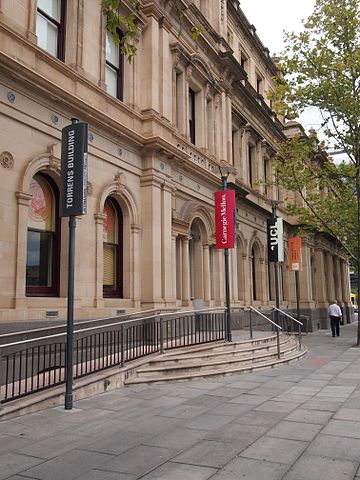The Hon Alan Tudge MP,
Minister for Education and Youth issued a media release "Shaping the future of international education in Australia" (31 March 2021). The Minister was launching consultations for the Australian Strategy for International Education 2021-2030. I suggest a key part of the strategy should be to make international students feel welcome and appreciated. However, the Minister suggested maximizing the long-term benefits of international students for Australia. Unfortunately this may further discourage internaional students from enrolling in Australia, with them feeling exploited, rather than helped. This comes after the Prime Minister suggested that if students already here were short of funds, due to the COVID-19 pandemic, they should go home.The Minister suggested "... the disruption of COVID provides an opportunity to look at the sector and ensure it is working for students and for Australia in the long-term ...". This appears to suggest that international students in some way interfere with Australia students education and are a determent to the Australian economy. I don't understand how this can be the case, given that international students contribute billions of dollars to the Australian economy and also contribute to university intellectual life. Also I am not aware of any other sector where Australian government ministers set out to insult our major export customers in this way.
One approach proven by Australian universities is a partnership with institutions in-country. An example is the the Sri Lanka Institute of Information Technology (SLIIT). This private institution is affiliated with several Australian universities. I visited SLIIT in 2013 and it is accredited to deliver programs in Sri Lanaka.
Another approach would be to replicate the Torrens Building Adelaide in countries of the region. This building is shared by multiple international universities, to provide them with a local presence. There may be value in universities using Australia as a brand, while competing for international students. An example of this approach is Open Universities Australia, which provides a single brand for multiple institutions offering online education. That approach could be extended to naming rights for buildings in the region. International students could undertake face to face classes for part of their studies while attending other classes online at the Australian institution of their choice. Some initiatives from the Australian Government for domestic students may be of interest to international ones. Last year an
undergraduate certificate was introduced as a response to COVID-19. This allowed students to receive a formal qualification after only one semester of full time study. Universities could offer this to international students, with the option to go on to a degree. Flexibility to allow for this and online study while on a student visa would also help attract international students. The students could be undertaking
work integrated learning, with an Australian employer, while studying at an Australian university.


No comments:
Post a Comment